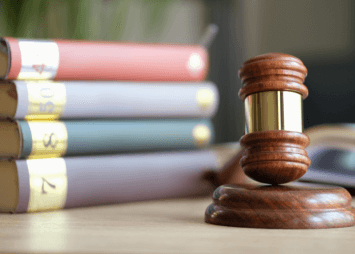Q.1 Is there any difference under the English Law and the Indian Law with regard to a child-witness ?
Q.2 What is the meaning of “voir dire” ?
Q.3 “Voir dire” is –
a) an English word
b) a Latin word
c) a Greek word
d) a French word
e) a Persian word
which of the above is correct ?
Q.4 What is meant by “voir dire examination” and what is its application ?
Q.5 What is the relevance of the Oaths Act, 1969 in the matter of oaths and affirmations to be made by witnesses, interpreters etc?
Q.6 What is meant by administering oath to a witness and what is its purpose ?
Q.7 If the witness or other person is not a “believer” but is a “rationalist”, has he got any option other than
taking an oath in the name of God?
Q.8 Is it correct that “oath” referred to in the Oaths Act, 1969 is only “judicial oath” ?
Q.9 Is the Oaths Act applicable to proceedings before the Collector under Section 171A of the Sea Customs Act, 1878 ?
Q.10 If the Oaths Act does not apply to the proceedings before the Collector under the Sea Customs Act, 1878, is the person making a statement before the
Collector under Section 171A of the said Act, bound to state the truth ?
Q.11 Is it not permissible to administer oath to an accused person while a Magistrate records his confession under Section 164 (4) Cr.P.C?
Q.12 Would it make any difference if the accused is examined as a defense witness under Section 315 Cr.P.C?
Q.13 Will not the omission to take oath or affirmation or any irregularity in administering oath or affirmation, invalidate the proceedings, or at least, render the evidence of the witness inadmissible?
Q.14 Is it not true that a witness to whom no oath or affirmation has been administered under Section 4 (1) of the Oaths Act, 1969, does not have
any obligation to state the truth?
Q.15 Does not the Oaths Act, 1969 deal with the “competency” of the witness ?
Q.16 What is the purpose of “voir dire examination” in the context of Section 118 of the Evidence Act and Section 4 of the Oaths Act, 1969, in the case of a child-witness ?
Q.17 If after a preliminary examination the Magistrate considers the child-witness to be incapable of understanding the nature of oath, is it desirable that the Magistrate should make any further record before actually examining the child-witness ?
Q.18 Does not the Indian Evidence Act, 1872 prescribe a minimum age for a child-witness to be a competent witness ?
Q.19 If during the preliminary examination by the Judge, a child-witness aged 8 years tells the Judge that he has been brought there to give evidence about his mother’s death and when asked whether he knows the Judge on the dias or the advocate standing before him, the child replies that he does not know who they are. In such a situation, is not the Judge justified in not examining the child-witness?
Q.20 What should the presiding Judge do while conducting a voir dire examination ?
Q.21 Should there be a child-friendly atmosphere set up for recording the evidence in the case of vulnerable victims of child sex abuse ?
Q.22 What are the usual safeguards applied by Courts while evaluating the testimony of a child-witness?
Q.23 A Sessions Judge during voir dire examination of a female child aged 12 years, finds the child intelligently answering the questions put to her but observes that even though the child understands the duty of speaking the truth, does not understand the nature of oath. Accordingly, her evidence is taken without administering oath to her. Is there any irregularity on the part of the Sessions Judge ?
Q.24 Give a few instances in which the Supreme Court accepted the testimony of a child-witness ?
Q.25 Has there been any instance of the Supreme Court rejecting the testimony of a child-witness ?
